![]()
Chromosphere through a LIMICON Halpha filter
Chromosphere through a Coronado PST
Pictures below were taken with a
Schmidt Cassegrain 8" MEADE LX10 telescope equipped with a
LUMICON H-alpha filter of 1.5 Angström throughput. This filter
consists of two parts. On the telescope aperture side, an off-axis
red filter, called rejector filter, is limiting the light power
absorbed by the telescope. On the eyepiece side is fixed an
interferential filter. Adjustment of the filter window on the H-alpha
hydrogen ray at 6563 Angstöms is made with a rotating knob.
Through this filter the sun is
uniformly red orange colored. Peripheral prominences are the only
visible details.
Below are two pictures of
prominence taken with an EPSON PC600 digital camera.
On the left picture taken on 7/14/98.
On the right picture taken on 5/17/98. A sun spot is visible on
the right side.
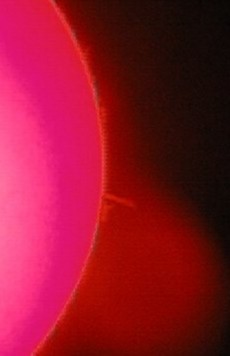 |
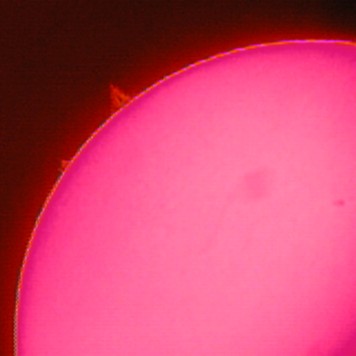 |
Below are two pictures of
prominence taken with an EPSON PC3000Z digital camera. The solar
disk has been darkened in order to enhance visual contrast in the
chromosphere area.
Top picture was taken on 02/25/01. Bottom picture was taken on 07/25/01.
 |
 |
Below is a picture of an eruptive prominence taken with an EPSON PC3000Z digital camera on 07/07/2002. The time elapsed from beginning to end of the eruption was about 20 minutes.
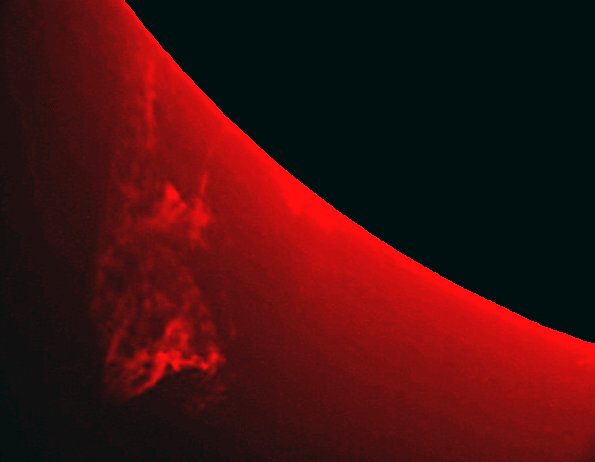 |
 A movie of
this prominence (.GIF format 612K)
A movie of
this prominence (.GIF format 612K)
The time elapsed between
consecutive frames is about one minute.
Below, pictures taken on 12/5/99 in the morning with a CCD Quickcam VC. On the left is an eruptive prominence. On the right this is a group of prominences and spicules, looking like a gothic cathedral. The tower of such a cathetral would be higher than the terrestrial diameter.
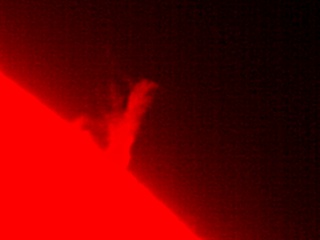 |
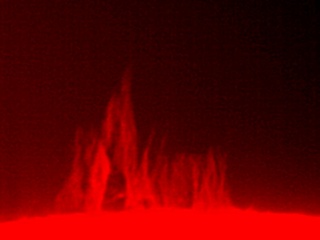 |
Below, two pictures taken on 02/05/2000 in the morning with a CCD Quickcam VC. This prominence was chest-nut shaped with 3 attachments on the ground. A few minutes elapsed between these two pictures revealing the formation of an arch on the left.
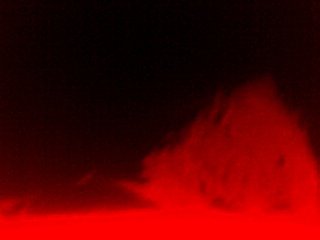 |
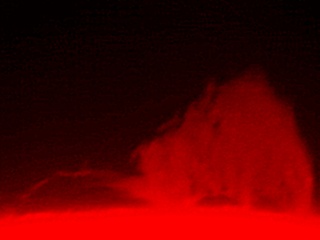 |
Below is a picture of a detached prominence taken on 09/22/2001 with a Philips Vesta Pro camera. The solar disk has been manually darkened.
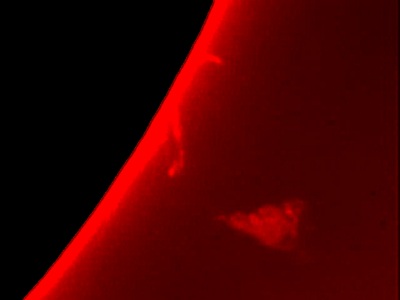 |
Below is a picture of prominences taken on 11/01/2001 with a Philips Vesta Pro camera. The sensitivity of the camera has been adjusted in order to get simultaneous seeing of prominences and spots lying near the limb. The red line surrounding the limb represents the chromospheric layer.
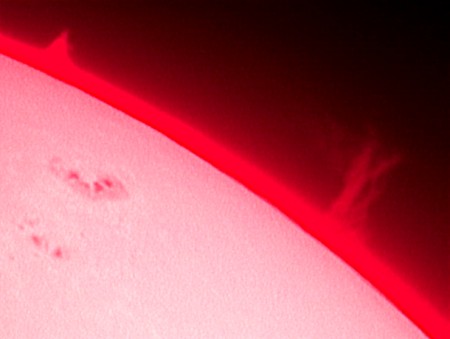 |
Below is a picture of a huge prominence captured 04/21/2002 with a Philips Vesta Pro camera. The solar disk has been manually darkened.
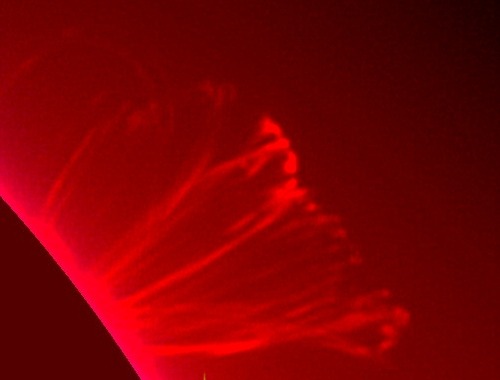 |
 A movie of
this prominence (.GIF format 900K)
A movie of
this prominence (.GIF format 900K)
This 3 seconds movie shows one
hour of evolution of this prominence.